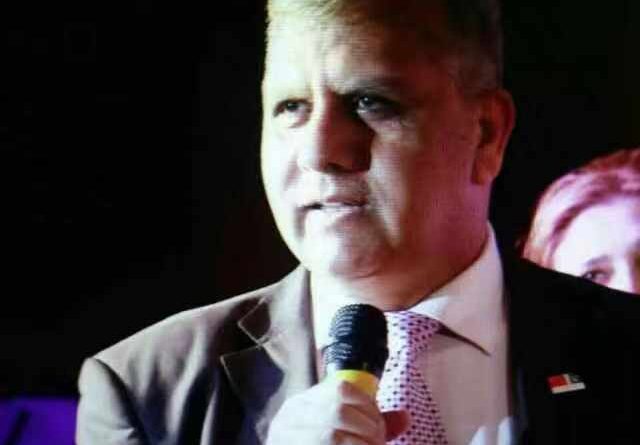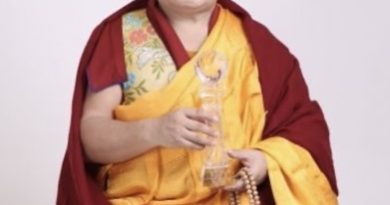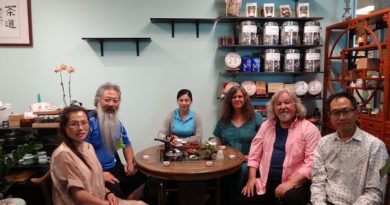My passion for China – 我与中国的故事
泽米尔·阿万(Zamir Ahmed Awan)
魅力中国难忘的留学生活

我从小就听父亲讲中国的故事,1940年初他曾在中国服役。随着年龄的增长,我对中国的好奇也愈加强烈。高中毕业前,我申请到了中国政府的奖学金,并于1980年9月21日来到中国,进入北京语言学院(今北京语言文化大学)深造。
通过1年的中文学习,我发现这门语言好美,而且表达上非常准确,不会产生任何歧义。例如,uncle(叔叔)和aunt(阿姨)是很常见的英文称谓,但并不能明确表达出是指父母的哥哥姐姐还是弟弟妹妹,但在汉语中它们的意思非常明确。尽管我们在书写汉字时遇到了困难, 但感觉语法、发音、口语都还简单,而且口语也很有趣。
我对中国的热爱是我努力工作和学习中文的动力。结束在北京1年的语言学习后,我被上海大学机械工程专业录取。在老师的悉心指导和自己的努力下,我先后于1985年和1987年获得了机械工程的学士和硕士学位。上海和北京在气候、生活习惯,甚至方言都有很大差异。我努力接受挑战,很快适应了上海生活,还学会了些上海话,同当地人交流时更方便了。我和同学们学习、生活在一起,尽管偶尔也会有些争吵,但很快乐,也很享受这段时光。这期间,我的汉语水平不仅得到很大提高,还学习了中国的文化、历史、传统、政治制度和治理。我注意到巴基斯坦和中国虽为两个不同的国家,有着不同的政治制度和宗教信仰,但在文化上有很多相似之处,也有很多共同的价值观,我为此深受感动。
当时正值中国改革开放初期,我有幸目睹了中国改革开放的伟大进程,我也是极少数能就今天的中国和当时的中国做比较的外国人之一。我用过粮票、食用油券、肉类券等,感受过严格的配额制度,那时排队领取生活必需品是常事。我还逛过胡同、蹲过公厕,体验过高峰时段的公共交通等等。但我也看到了中国逐步的发展,比如取消了食品、服装和其他日常用品的配额制度。中国农业部门进行了有史以来的首次重大改革,使国家能够更容易地获得食物,并使近5亿人摆脱了贫困。在取得农业部门改革的成功经验后,其他部门也逐步进行改革。工业部门的改革最为迅猛,使中国成为“世界制造业工厂”,不仅满足了国内需求,向世界其他地区出口。中国通过友好、有吸引力的政策,吸引全球企业家以合资形式来华投资,大多数外国投资者不仅带来了外国直接投资,还带来了先进的技术、管理和营销技巧,他们还对当地劳动力进行现代化和先进生产线的培训。中国人靠智慧解决了投资和先进技术技能短缺的问题。这不仅是经济上的变化和物质上的丰富,人们的思想也发生了变化。
中国经济真正得到提振是在2001年加入WTO之后。中国是WTO体制的真正受益者,并极大地改善了其出口。就在几十年前,西方世界深入中国的商业,想要占领这个超过14亿人的巨大市场。但仅仅几十年后,它们就变成了中国的一个市场。
2005年,中国经济超越德国成为世界第三大经济体。德国人认为这很正常,相信任何国家只要努力工作就能超越他们。但当2010年中国超越日本成为世界第二大经济体后,日本开始与中国竞争。此时,美国也认为,如果未来中国的经济增长率保持不变,中国经济将超过美国,成为全球第一大经济体。美国将此视为对其全球霸权的严重挑战和威胁,这是中美竞争的真正原因。
出任驻中国的外交官2010-2016年,我出任巴基斯坦驻北京大使馆参赞,负责推动两国在科学、技术和高等教育领域的合作。任职期间,我运用了在中国留学期间学到的所有知识和技能,取得了令人瞩目的成绩:签署了多份谅解备忘录、协议、技术转让;促成了多起科学家、学者和技术人员的交流;巴基斯坦在华留学生人数每年呈指数增长;在中国成功培训巴基斯坦劳动力,并向巴基斯坦出口中国产品。
由于我在公共外交方面取得的优异成绩,被中国社会称赞为巴中友好大使。我参加了很多研讨会,发表演讲,与中国官员和公众人物互动,促进两个兄弟国家之间的理解和和谐。从留学生到外交官,我对中国的理解有很大的不同。当学生时,我专注学习;而身为外交官,我更专注于传达。我感谢老师们对我的培养,我所有的成就都归功于他们的谆谆教诲和辛苦付出。
1949-1976年,中国确立起社会主义基本制度,初步建成独立的比较完整的工业体系和国民经济体系,为改革开放奠定了坚实的基础。1978-2013年,中国成功开创了中国特色社会主义,并将中国特色社会主义全面推向21世纪。这一阶段是中国经济高速发展的阶段,取得了世界第二大经济体的地位。2013年至今,中国取得80W 魅力中国了全方位、开创性的成就,并在地缘政治中发挥了积极作用。其中习近平主席提出的“一带一路”倡议和取得的成就给我留下了深刻印象。这是一个巨大的发展倡议,已经涵盖了近150个国家和地区。这是友好国家之间的互利合作,旨在加强互动、发展基础设施、加强经济活动、促进理解与和谐。对于友好国家来说,是一个促进经济、公共外交、人民交流和克服贫困的理想机会。巴基斯坦是中国最亲密的朋友,是“一带一路”的受益者之一。“一带一路”倡议下的中巴经济走廊建设成果正在造福巴基斯坦人民。中国抗击疫情、帮助世界各国克服疫情严峻挑战的方式令人钦佩。中国还取得了消除绝对贫困、全面建成小康社会的伟大成就。就在40年前,中国的贫困人口比例高达88%。
今天,中国正面临来自外部的巨大挑战。美国将中国的发展崛起视为对其70年全球霸权的严重威胁。美国试图遏制中国、对抗中国、抵制中国的和平崛起。无论是在香港问题、台湾问题,还是新疆问题上,美国都试图伤害中国,给中国的顺利发展制造障碍。
结束外交官生涯后我回到巴基斯坦,在一流的巴基斯坦国立科技大学建立了中国卓越研究中心,为国家培养优秀的工程师、技术专家、经济学家、科学家或任何专业的学者,但他们必须要对中国有足够的了解。我花了近6年的时间努力在巴基斯坦建立国民对中国的认识,通过教学、研究、研讨会、工作坊、讲座、电视节目、发表与中国相关文章等,成绩显著。我曾带着学生们去中国学习,使他们获得对中国最直接的认识。其中一些学生对中国的发展印象深刻,选择在中国接受高等教育。总的来说,反响非常好。
除中国和巴基斯坦的媒体,我是唯一一个在国际媒体上发表如此多展示中国正面形象和视角文章的外国人。在中国,我的大部分文章都发表在《中国日报》、《环球时报》、《人民日报》以及中国国际电视台。中央电视台、中国国际广播电台等也播出过对我的采访。此外,我的文章还在欧美、中东、非洲以及南亚其他国家发表,读者数量不断增长。一些文章还在读者中引发了争论,进一步传播到其他的圈子。我的文章也经常被其他研究者引用并作为参考。
我在中国生活了很长时间,可以说是在中国长大的,与中国的关系非常密切。我对中国的热情不断高涨,非常愿意为中巴友谊尽自己一份薄力。我认为我最重要的成就是我的学生和我的儿子,他们将把我对中国的热情,以及中巴之间的传统友谊、兄弟之情传递下去。
THE CHARMING CHINA
Memorable Student Life
Since my childhood, my father usually told me about China since he served there before liberation, probably in early 1940. It was natural that my curiosity about China with age. I applied for a Chinese Government scholarship before I graduated from high school. I was lucky enough that secured this
prestigious scholarship on merit and left for China on 21 September 1980 to start my study life in Beijing Language Institute, nowadays known as Beijing Language and Culture University.
After one year of study, I noticed the beauty of the Chinese language. It is very comprehensive and describes everything very clearly, without any ambiguity. For example, the words Uncle and Aunt are quite common in English, but cannot identify whether the persons these persons are younger or older than your parents. But in Chinese, they are very specific words for each relation, without any ambiguity. Although, we faced difficulty in writing characters, but noticed that the grammar, pronunciation, and oral are quite easy, especially oral Chinese, which is quite interesting. My love and passion for China were the motivational force for me to work hard and learn the language quickly.
After completing my language in Beijing for one year, I got admission to a Mechanical Engineering major at Shanghai University. With the kind mentorship of the teachers and my hard work, I received my Bachelor’s Degree in 1981 and my Master’s degree in Mechanical in 1987.Shanghai is quite different from Beijing, in the lifestyle, climate, and even the local oral language. My strong passion to know China was the motive force behind my hard work and overcoming all challenges.
I adapted effortlessly to the new surroundings quickly and learned a bit of Shanghainese so as to communicate with the local people more conveniently. During these years, I got along quite well with my Chinese classmates.
We together lived, studied, had dinners, played and cheered, and even sometimes quarreled. I was very happy and enjoyed that time so much. While studying in Shanghai, my Chinese got a very big rise. I also learned the Chinese culture, history, traditions, political systems, and governance. I noticed that there were so many similarities between Pakistani and China on culture and values although the two countries had different political systems and religions which strongly impressed me.
It was the early period of reform and opening up in China. I am so lucky to be one of the few foreigners who can compare the China of today and of the 1980s. I have experienced strict quota systems using coupons for grain, oil, or meat. Queuing up to get the basic necessities of life was common practice. I also traveled around Hutong, used public toilets, experienced public transport during rush hours, etc. But I have seen gradual developments, removing the quota system for food, clothing, and other items of daily used items. The first-ever reforms were introduced in the agriculture sector, which has enabled the nation easy access to food and up-lifted almost 500 million people from the poverty line, then followed by other sectors. The Industrial sector reforms have shown rapid developments and China became a “World Manufacturing Factory” that not only met the domestic demand but also exported aboard. Through friendly and attractive policies, China has attracted global industrialists to invest in China in the form of joint ventures. Most of the foreign investors brought not only direct investment but also advanced technology, management, and marketing skills. Chinese people used their wisdom to overcome the lack of investment and advanced technology skills. It was not only the changes in the economy and materialistic abundance but also the thinking.
The real boost to the Chinese economy was after it joined WTO in 2001. China was a real beneficiary of the WTO regime and improved its exports tremendously. Just a couple of decades ago, the Western world interred into China’s business and intended to capture the Chinese market. But, they ended up just after a couple of decades becoming a market for China.
China leapfrogged Germany in 2005 to become the third-largest economy in the world. German took it as normal because they believed that any nation could surpass them with its hard work. But Japan doesn’t think so. As China leapfrogged Japan to become the second-largest economy in 2010, it started to compete with China. At that time the U.S. believed that if the growth rate remained unchanged in the future, China would leapfrog the U.S.to become the largest economy. The US took it as a serious challenge and as a threat to its global hegemony. This is the real cause of Sino-US rivalry.
Being a Diplomat in China I served as a counselor at the Pakistan Embassy in China from 2010 to 2016 in charge of Science, technology, and higher education. During my term, I used all the knowledge and skills that I learned in China and achieved a lot such as having managed several memorandums, agreements, transfer of technology, and a few exchanges of scientists, scholars, and technologists.
During that period, the number of Pakistani students in China grew exponentially each year, and successfully trained the Pakistani workforce in China and dispatched Chinese exports to Pakistan.
I was honored as the Goodwill Ambassador of Pakistan and China for my achievements in public diplomacy. I attended many seminars, delivered speeches, and kept in touch with Chinese officials and public figures so as to promote understanding and harmony between our two brotherly nations.
My understanding of China was quite different between being a student and a diplomat. As a student, I only focused on studying while as a diplomat, I focused on getting across. I did appreciate the help of my teachers. I attribute my success to their patient teaching and hard work.
From 1949 to 1976, China established the basic socialist system and initially established an independent and relatively complete industrial system and national economic systems, laying a solid foundation for reform and opening up. From 1978 to 2013, China successfully created socialism with Chinese characteristics and advanced Chinese characteristics into the 21st century. It was a period of rapid economic development in China which achieved the status of the Second Largest Economy in the world. Since 2013, China has made comprehensive and groundbreaking achievements and played an active role in geopolitics. The Belt and Road Initiative proposed by President Xi Jinping and its achievements left me with a deep impression. This is a huge initiative for development that has comprised nearly 150 countries and regions. It promotes mutually beneficial cooperation among friendly countries aimed at enhancing interaction, developing infrastructure, enhancing economic activities, and promoting understanding & harmony. For friendly countries, it is an ideal opportunity to boost the economy, public diplomacy, people-to-people exchanges, and overcome poverty. Pakistan is China’s closest friend and one of the beneficiaries of the Belt and Road Initiative.
The Pakistanis are profiting from the achievements of the China-Pakistan Economic Corridor, a key project of the BRI. What China did in fighting against The COVID-19 pandemic and assisting other countries to overcome severe challenges posed by COVID-19 are admirable. China has received great achievements in eradicating extreme poverty and building a moderately prosperous society. China was the victim of poverty up to 88% just forty years ago.
Today, China is facing huge challenges from the outside. The U.S. conceives China’s development as a serious threat to its seventy years of global hegemony. The U.S. seeks to contain and fight China and resists the peaceful rise of China. Ether the question of Hong Kong, Taiwan, or Xinjiang, the U.S. seeks to harm China and create obstacles to its smooth development of China.
After I stepped down from the embassy, I returned back to Pakistan and established the China Study Center of Excellence at the National University of Sciences & Technology (NUST) aiming at training excellent engineers, technologists, economists, scientists, or scholars of any specialization for Pakistan who must be of adequate knowledge of China as well. It took me almost six years to create China awareness in Pakistan by teaching, researching, seminars, workshops, lectures, TV shows, publishing China-related articles, etc., and have achieved good progress. I took my students to China to help them get their own experience. Some of them were so impressed by Chinese developments and decided to stay in China for higher education. Overall, the net impact was very good.
I am the only foreigner with so many publications projecting a Chinese positive image and perspective in the international media in addition to Chinese and Pakistani media. In China, most of my articles were published in China Daily, Global Times, People’s Daily, CGTN, etc.While my interviews were broadcasted on CCTV, CRI, etc. Besides China and Pakistan, my articles were also published in Europe, America, the Middle East, Africa, and South Asia. The readership of my articles is quite well and kept on growing. Some of my articles have initiated a debate among readers and further circulated more widely. My articles have been cited often by other researchers and used as references.





